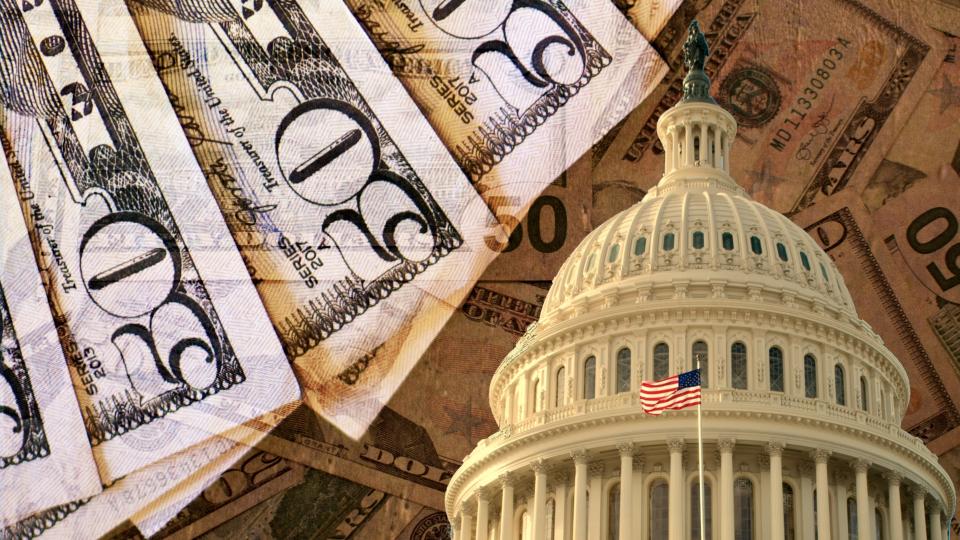What Happens to Any Leftover Money You Give to Politicians?

If you donate to a political campaign, it’s natural to assume the politicians receiving it will spend every last dime. But in reality, that’s not what happens. While it’s true that some candidates may blow through all of their funding, money is often left over.
Discover More: Grant Cardone Asks How Politicians Making $100K Suddenly Become Multimillionaires
Explore More: How To Get $340 Per Year in Cash Back on Gas and Other Things You Already Buy
As that money can’t legally be spent on personal expenses, what happens when a campaign’s over and there aren’t any more legitimate political bills to pay? Here are some of the potential options:
Wind-Up Expenses
Expenses don’t stop when candidates lose an election or drop out. Money is still needed for things ranging from staff salaries to utility bills, rent and outstanding loans, among many others. All of these liabilities need to be resolved before a campaign officially shuts down the money outflow.
Other Candidates
Campaigns are allowed to transfer unlimited amounts of money to other state and local candidates, in compliance with state law. Federal candidates, like those running for president, receive no more than $2,000.
Future Races
In many cases, candidates losing an election are already looking ahead to their next campaign before they even give their concession speech. Fortunately for them, leftover campaign money can be designated for future elections, subject to certain conditions.
Political Party
Just like leftover money can be given to other candidates, it can be donated to political parties. For example, if a Democratic candidate loses an election, he or she can donate what’s left over to the Democratic National Committee.
PACs
A PAC, or political action committee, is a committee that a candidate can control to advance a political agenda as long as it doesn’t directly finance their campaign. This can be anything from a certain agenda or cause to another candidate.
Trending Now: 5 Presidents Who Raised Taxes the Most, and 5 Who Lowered Them
Some criticize PACs for giving candidates the freedom to spend money without the restrictions attached to direct political contributions, but it’s nonetheless legal to transfer leftover campaign money into these types of organizations.
Recounts
In a close election, a candidate may have the right to call for a recount to verify that all votes were tallied properly. This, of course, costs money, and someone has to pay for it. As a recount is a campaign-related expense, a candidate can use leftover money to shoulder the cost.
Charity
Charity is an option for leftover political money, but it’s typically only used if a candidate is retiring or otherwise leaving the political arena.
As Kang explains it, “It’s really only the people who are ending their kind of public life who donate it to charity,” said Michael Kang, Northwestern law professor. “The other candidates are just taking a break, and they’ll probably retain that money in some form or deploy it politically in ways that are useful for their career.”
Borderline Personal Expenses
Whenever you’re speaking about politicians, there are a lot of gray areas.
While a candidate couldn’t use campaign funds to buy themselves a pizza, for example, they may be able to spring for a pizza dinner for their campaign staff at work, according to Northwestern law professor Michael Kang.
Refunds to Donors
Don’t get your hopes up – in most cases, campaigns don’t return contributions to individual donors. There are some exceptions, and the return of contributions to contributors is legally permitted, but in most cases, candidates find another use for their “extra” money.
Important Distinction: “Surplus Funds”
There’s a critical distinction between “leftover money” after a campaign concludes and “surplus funds.”
Leftover money becomes surplus on the 90th day after the officeholder leaves the office for which the funds were raised or on the 90th day after the end of the post-election reporting period following his or her defeat, whichever occurs last.
This means candidates have roughly three months after their campaign is decided to figure out what to do with any leftover money. If they take too long, that money is labeled “surplus,” bringing additional restrictions on what candidates can do with it.
Specifically, surplus funds can only be used for the following expenses:
Outstanding debts or expenses
Contributor refunds
Charitable donations, with restrictions
Contributions to a PAC, with restrictions
Contributions to support/oppose a political candidate, with exceptions
Payments for attorneys or professional services related to litigation arising from a campaign or election activities
Payment for an electronic security system
One important distinction between surplus and leftover funds is that surplus funds can’t be used for a future election. As this is the way that many candidates use their leftover funds, they must use it before those 90 days have elapsed.
More From GOBankingRates
I Was Retired, but Wasted Big Money On These 3 Things and Had To Go Back To Work
7 Things to Do With Your Savings in 2024 to Grow Your Wealth
4 Reasons You Should Be Getting Your Paycheck Early, According to An Expert
This article originally appeared on GOBankingRates.com: What Happens to Any Leftover Money You Give to Politicians?
